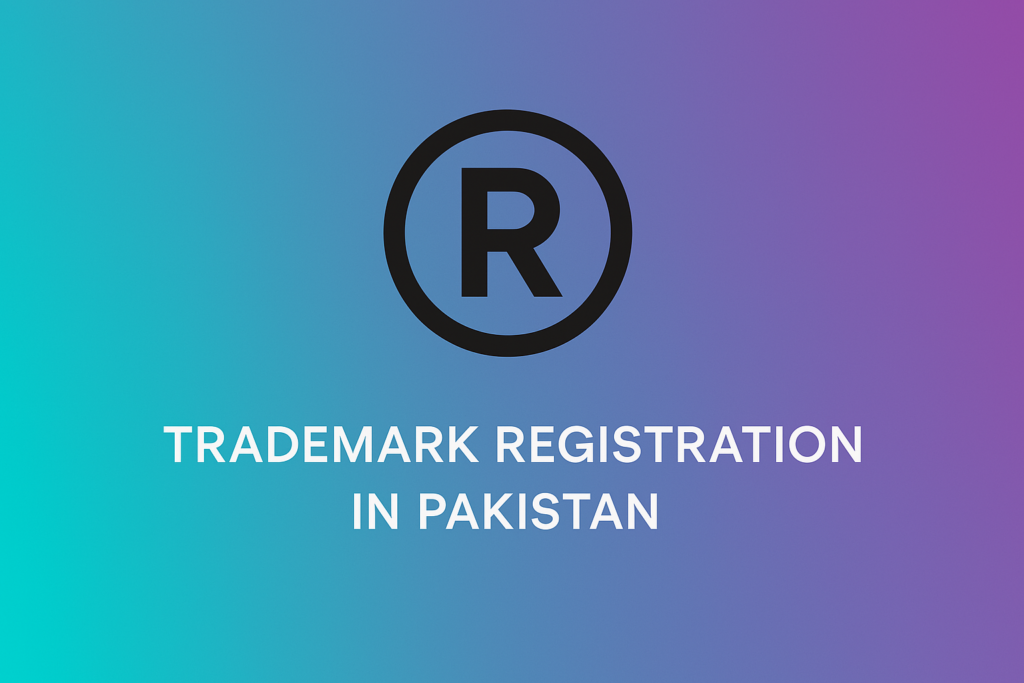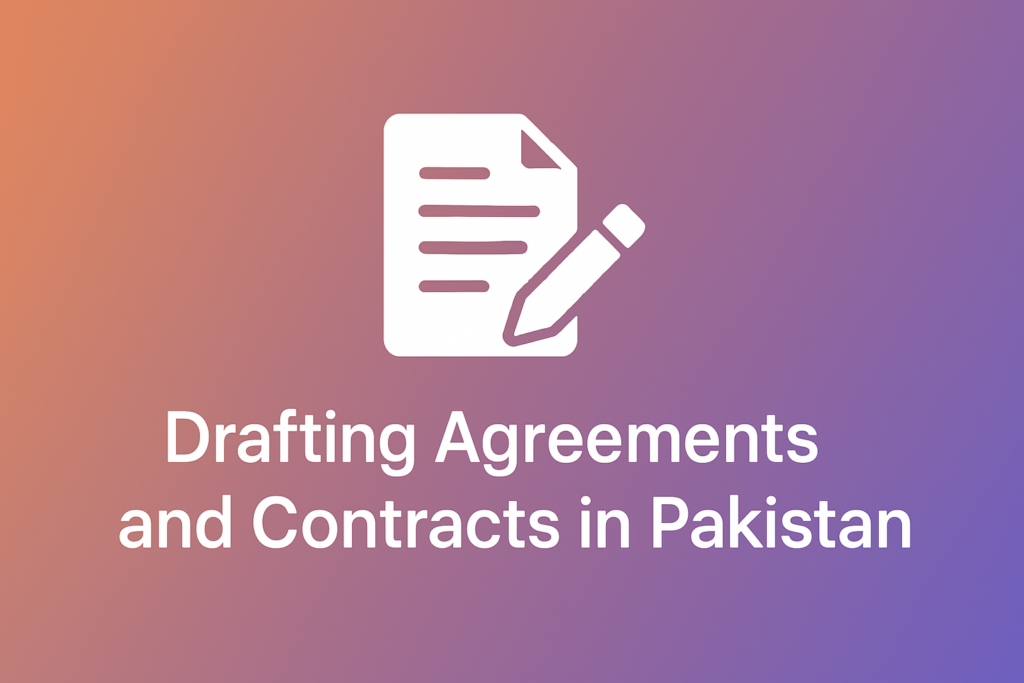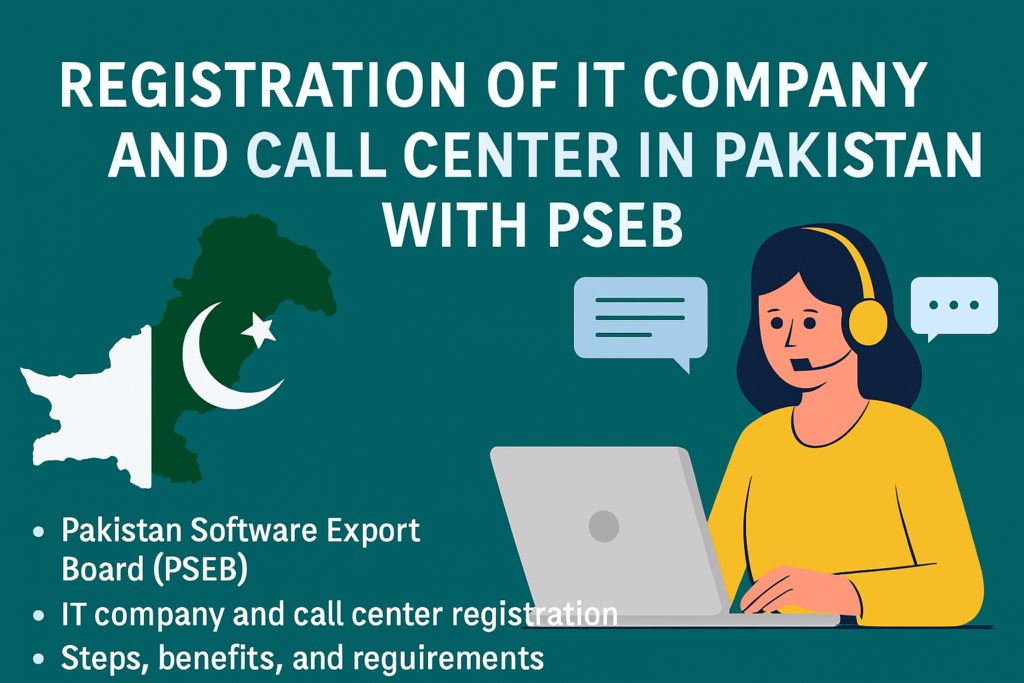Trademark registration is crucial for protecting your brand in Pakistan. It grants you exclusive rights and prevents misuse by others.
Securing a trademark in Pakistan ensures your brand’s identity remains unique and protected. Imagine investing time and resources into building a brand, only to find someone else using a similar name or logo. This could confuse your customers and harm your business.
Trademark registration helps you avoid this scenario. It gives you legal tools to defend your brand against any unauthorized use. Also, it adds value to your business, making it more recognizable and trustworthy. In this blog, we will discuss the process and benefits of trademark registration in Pakistan, guiding you through each step to safeguard your brand effectively.
Introduction To Trademark Registration
Trademark registration is essential for any business in Pakistan. It helps protect your brand and ensures exclusive rights. In this section, we discuss the importance, legal framework, and process of trademark registration in Pakistan.
Importance Of Trademarks
Trademarks are symbols, logos, or names representing your brand. They distinguish your goods or services from others. They build trust and loyalty among customers. Registered trademarks prevent others from using similar marks. They offer legal protection and help in marketing your brand effectively.
Legal Framework In Pakistan
Pakistan’s trademark laws are governed by the Trade Marks Ordinance, 2001. This ordinance outlines the rules and procedures for registration. The Trade Marks Registry administers these laws. The registry ensures trademarks are unique and comply with legal standards. The process involves filing an application, examination, and publication. If approved, you get exclusive rights to use the trademark.
Eligibility Criteria
Understanding the eligibility criteria for trademark registration in Pakistan is crucial for protecting your brand. Knowing who can apply and the types of trademarks can save you time and hassle. Let’s dive into the specifics.
Who Can Apply?
If you’re wondering whether you can apply for a trademark in Pakistan, the answer is likely yes. Any individual, business, or organization can apply. This includes Pakistani citizens, foreign nationals, and even companies operating in Pakistan.
Are you an individual entrepreneur? You can apply under your own name. If you run a business, the trademark can be registered in the business’s name. This flexibility ensures that everyone has an opportunity to secure their brand identity.
Types Of Trademarks
Not all trademarks are the same. There are several types you can consider based on your needs. Let’s break down the main categories:
- Word Marks: These are the most common types and include letters, words, or numbers. Think of brand names like “Nike” or “Apple.”
- Figurative Marks: These include logos or images. For instance, the swoosh for Nike is a figurative mark.
- Combined Marks: These are a mix of words and images. Many brands opt for this to create a strong visual identity.
- Service Marks: If you’re offering services rather than products, a service mark can be your go-to. For example, the name “FedEx” for delivery services.
Understanding these types can help you choose the right one for your needs. For example, if you have a unique logo, a figurative mark might be the best choice. On the other hand, if your brand name is unique, a word mark could be more suitable.
So, what’s stopping you? Assess your eligibility and decide which type of trademark suits your brand. Protecting your identity is just a step away.
Application Process
Registering a trademark in Pakistan involves several steps. Understanding the application process helps ensure a smooth and successful registration.
Filing Requirements
The first step in the trademark registration process is filing. Applicants must submit a properly completed application form. The form should include the applicant’s name, address, and nationality. It is important to accurately describe the trademark and list the goods or services associated with it.
The application must comply with the rules set by the Intellectual Property Organization (IPO) of Pakistan. The rules ensure the trademark meets legal standards and is unique.
Necessary Documentation
Several documents are needed for trademark registration. These include a clear representation of the trademark, such as a logo or word mark. If the trademark includes words, the exact spelling must be shown.
Applicants must provide a power of attorney if they are represented by an agent. This document authorizes the agent to act on their behalf. Proof of use of the trademark may also be required. This helps demonstrate that the trademark is already in use in commerce.
Properly organizing and submitting these documents ensures the application is complete. A complete application reduces the likelihood of delays or rejection.

Credit: www.linkedin.com
Examination Of Application
The Examination of Application in Pakistan’s trademark registration process involves a thorough review by the trademark office. This step ensures the application meets all legal requirements and checks for conflicts with existing trademarks.
When you apply for a trademark in Pakistan, your application undergoes a series of steps to ensure it meets all legal requirements. This process is called the Examination of Application. It’s a crucial stage that determines if your trademark will be accepted or rejected.
Initial Review
The first step in the examination process is the Initial Review. Here, the officials at the Intellectual Property Organization of Pakistan (IPO-Pakistan) check if your application is complete and all required documents are attached.
They also verify if your trademark meets the basic eligibility criteria. For example, it should not be identical or too similar to an existing trademark. This initial review is vital as it saves time and effort for both the applicant and the authority.
Have you ever wondered if your trademark would pass this initial review? It’s always a good idea to double-check your application for completeness and correctness.
Publication And Opposition
If your application passes the initial review, it moves to the next stage: Publication and Opposition. Your trademark is published in the Trademark Journal, which is available to the public.
This publication allows others to see your trademark and raise objections if they believe it conflicts with their existing trademarks.
You have a specific period, usually 60 days, during which anyone can file an opposition. This stage can be nerve-wracking but is essential for maintaining a fair market.
Ever thought about how you would handle an opposition? Preparing a strong response can make a significant difference in protecting your trademark.
Remember, each of these steps is designed to ensure that your trademark is unique and enforceable. By understanding the examination process, you can better navigate the path to securing your brand identity in Pakistan.
Approval And Registration
Trademark registration in Pakistan is a step-by-step process. After applying, the trademark undergoes scrutiny. If the trademark meets legal criteria, it moves to the approval stage. Approval signifies that the trademark is eligible for official registration.
Issuance Of Certificate
Once approved, the trademark is registered. The authority issues a certificate of registration. This certificate confirms the trademark’s official status. It serves as legal proof of ownership. Keeping this document safe is crucial. It may be needed for future legal purposes.
Duration Of Registration
Trademark registration lasts for ten years. After ten years, renewal is necessary. Renewing the registration maintains legal protection. Without renewal, the trademark can lose its legal status. Regular renewal ensures continued protection and rights. Plan for renewals to keep your trademark secure.

Credit: zallp.com
Renewal And Maintenance
Trademark registration in Pakistan is not a one-time process. It needs ongoing attention to remain valid. Regular renewal and proper maintenance are key. This ensures your rights are protected and enforceable.
Renewal Process
The trademark registration in Pakistan lasts for ten years. You need to renew it before the expiration date. The renewal process is straightforward. File a renewal application with the Intellectual Property Organization (IPO). Pay the required fee. Submit the necessary documents. It’s essential to start this process early. Avoid the risk of losing your trademark rights.
Maintaining Rights
Maintaining your trademark rights involves more than just renewal. You must actively use your trademark in commerce. This shows the trademark is in use. Keep accurate records of its usage. This can include advertisements, packaging, and sales records. Monitor the market for any potential infringements. Take action if someone uses your trademark without permission. This helps protect your brand’s identity and value.
Another key aspect is updating your trademark information. Notify the IPO of any changes. This can include changes in ownership, address, or contact details. Keeping information current ensures smooth communication and legal protection.
Trademark Infringement
Trademark registration in Pakistan protects your brand from unauthorized use. It ensures legal rights and prevents trademark infringement. Secure your brand identity today.
### Trademark Infringement
Trademark infringement can be a serious issue for businesses in Pakistan. Imagine investing years in building a brand only to find another company using a similar name or logo. This can confuse customers and damage your reputation. Understanding how to identify and address trademark infringement is crucial for protecting your brand.
Identifying Infringement
Identifying trademark infringement starts with monitoring the market. Regularly check for businesses that might be using your trademark or something similar. Pay attention to new companies in your industry and any advertising that looks suspicious.
Also, keep an eye on social media and online platforms. Many businesses now operate online, and trademark infringement can easily happen there. If you find a potential infringement, gather evidence like screenshots and URLs.
Finally, consult a trademark lawyer for expert advice. They can help you determine if the use of a similar mark is likely to confuse customers, which is key in proving infringement. Have you ever had a close call with trademark infringement? Share your experience in the comments!
Legal Actions
Once you identify infringement, it’s time to consider legal actions. The first step is often to send a cease-and-desist letter. This formal letter requests the infringing party to stop using your trademark. It’s a quick and cost-effective way to resolve the issue.
If the infringer doesn’t comply, the next step could be filing a lawsuit. This is more serious and involves the courts. You’ll need to prove that the infringement is causing harm to your business. Be prepared with solid evidence and legal support.
Consider alternative dispute resolution methods like mediation. These can be less costly and time-consuming than a lawsuit. Have you ever had to take legal action for trademark infringement? What was the outcome?
Remember, protecting your trademark is vital for your business’s success. Don’t hesitate to take action if you believe your rights are being violated.

Credit: www.linkedin.com
International Trademark Protection
International trademark protection is crucial for businesses aiming for a global presence. Registering a trademark in Pakistan is the first step. Protecting it internationally ensures your brand’s security across borders. This protection helps in maintaining brand identity and preventing misuse. Let’s explore how to achieve international protection.
Madrid Protocol
The Madrid Protocol simplifies international trademark registration. Pakistan is a member of this treaty. This allows businesses to seek protection in multiple countries through a single application. The process is streamlined and cost-effective. The protocol covers over 120 countries, including major markets.
Filing an international application under the Madrid Protocol requires a basic national application. The World Intellectual Property Organization (WIPO) administers this system. This ensures a unified procedure and reduces paperwork. Businesses can manage their trademarks efficiently across different jurisdictions.
Benefits Of International Registration
International trademark registration offers several benefits. Firstly, it provides legal protection for your brand in multiple countries. This prevents unauthorized use and infringement. Secondly, it enhances brand recognition and credibility. Customers trust brands that are globally protected.
Thirdly, it simplifies the management of trademarks. One application covers multiple jurisdictions. This saves time and resources. Finally, it provides a competitive edge. Businesses can confidently expand into new markets. This boosts growth and market presence.
Common Challenges
Navigating trademark registration in Pakistan often involves dealing with bureaucratic hurdles. Complex documentation requirements can slow down the process considerably. Additionally, ensuring no existing trademarks conflict is challenging.
Common Challenges
Trademark registration in Pakistan can often feel like navigating a maze. While the process is crucial for protecting your brand, many businesses face common challenges that can delay or even derail their registration efforts. These challenges can range from simple mistakes to more complex issues that require careful attention.
Common Mistakes
One of the most frequent mistakes is not conducting a thorough trademark search before applying. You might think your brand name is unique, but without proper research, you risk applying for a trademark that is already in use. This can lead to your application being rejected, wasting both time and money.
Another mistake is providing incomplete or incorrect information on the application form. It’s easy to overlook small details, but even minor errors can cause significant delays. Double-checking all information before submission can save you a lot of headaches.
Additionally, failing to understand the classification system for goods and services can lead to your application being filed incorrectly. This can result in your trademark not covering the products or services you intended, leaving parts of your business unprotected.
Overcoming Challenges
So, how do you overcome these challenges? Start by conducting a comprehensive trademark search. Use online databases and consult with a trademark attorney if needed. This step ensures you’re not stepping on someone else’s toes.
Always double-check your application for accuracy. Ask a colleague to review it or hire a professional to help. Sometimes a fresh pair of eyes can catch mistakes you might miss.
Understanding the classification system is also crucial. Spend some time researching the different classes and choose the ones that best fit your business. This ensures that your trademark provides the protection you need.
Have you faced any unique challenges while registering a trademark in Pakistan? Share your experiences and tips in the comments below!
Frequently Asked Questions
How Can I Register My Trademark In Pakistan?
To register your trademark in Pakistan, apply to the Intellectual Property Organization (IPO). Submit the application, pay fees, and provide required documents. The IPO will examine and publish it for opposition. If no objections arise, your trademark gets registered.
How Much Does It Cost To Trademark In Pakistan?
Trademark registration in Pakistan typically costs around PKR 10,000 to PKR 15,000. Prices may vary based on additional services.
How Much Time Does It Take To Register A Trademark In Pakistan?
Registering a trademark in Pakistan usually takes around 18 to 24 months. The process involves multiple stages and legal formalities.
How Much Does It Cost To Register A Copyright In Pakistan?
The cost to register a copyright in Pakistan is PKR 2,000. This fee applies to literary, dramatic, musical, and artistic works.
Conclusion
Registering a trademark in Pakistan protects your brand and business. It ensures legal safety and helps build trust. The process might seem complex, but the benefits are clear. Safeguard your brand identity and avoid future conflicts. Seek legal advice to ease the registration journey.
Strong trademarks lead to business growth. Ensure you follow the steps carefully. Your brand’s future depends on it. Start the process today for a secure tomorrow.



